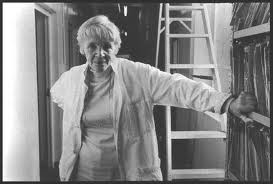Alice Stewart MD of Birmingham, England, has been a medical renegade for decades. Stewart began studying the causes of childhood cancer in the 1950's. Early research led her to suspect that various form of radiation were a major factor. Her theories were loudly ridiculed by both the medical and nuclear establishments. But Stewart, whose research is impeccable, proved conclusively that standard prenatal x-rays on mothers doubled the developing infant's risk of early cancer. Thanks to Stewart, the routine fetal x-ray is now a thing of the past, and medical professionals are very cautious about any x-rays on all women of child-bearing age. No one has calculated how many children have been saved from harm because of Stewart's "crazy idea."
Stewart later challenged standards for "acceptable" low-level radiation exposure, arguing that the standards are based on studies of healthy adult workers, not of children and the elderly. She's also been able to show a significant association of cancer deaths with background radiation levels. It's getting more difficult to dismiss her; Stewart is consistently right. In fact, her methods of analyzing data and her reputation for scientific honesty are so sterling that she's been called "the mother of epidemiology."
Stewart has maintained her scientific independence by using her own funds when necessary to keep her projects alive. She feels that being a woman has given her more freedom to explore than male colleagues have enjoyed; when she began her work, women were so rare in medical research that they were completely ignored by medical mainstream. In her eighties now, she's planning research projects for the next decade.
Alice Stewart's conducted 14-year battle with the US federal government that was settled in her favor. Epidemiologist Stewart argued that it was scientifically indefensible of the US Department of Energy to keep the health records of nuclear workers classified, and that it was a conflict of interest for the DOE to control funding for studies on the health effects of radiation in and around the plants they own and operate. DOE Secretary James Watkins declared that records will now be open to researchers, and studies will be managed by the Department of Health and Human Services. According to the New York Times, " These orders strengthened Dr. Stewart's reputation as perhaps the Energy Department's most influential and feared critic, and they enhanced her credibility as the leading technical expert on worker safety for the Department's opponents in Congress and for citizen groups."
Update:
Stewart eventually gained her coveted title of "professor" through her appointment as a professorial fellow of Lady Margaret Hall, Oxford. In 1997 she was invited to become the first Chair of the European Committee on Radiation Risk. Dr. Stewart died in June 2002 at the age of 95.

